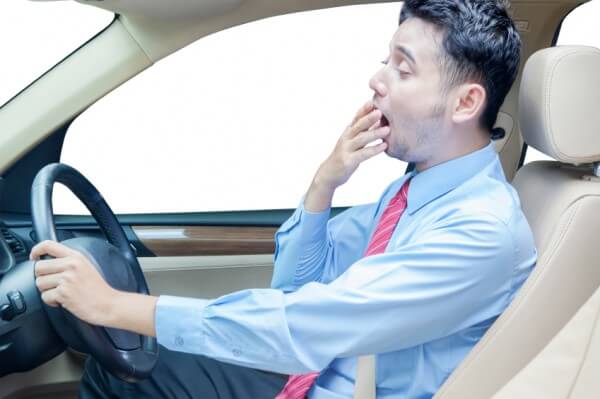Thousands of Fatalities Caused by Drowsy Drivers
Driving while fatigued comparable to drunk driving, texting while driving
In an increasingly sleep-deprived society, it’s no surprise that many people are getting behind the wheel while tired. What most don’t realize is that driving while fatigued is extremely dangerous.
 According to the Centers for Disease Control and Prevention, sleep deprivation significantly inhibits driving, much like driving drunk. Fatigued drivers are less able to pay attention to the road, and they react slowly to potential hazards. They also tend to make poor decisions behind the wheel.
According to the Centers for Disease Control and Prevention, sleep deprivation significantly inhibits driving, much like driving drunk. Fatigued drivers are less able to pay attention to the road, and they react slowly to potential hazards. They also tend to make poor decisions behind the wheel.
Compiling accurate information on drowsy driving is difficult, but it’s certain that fatigued drivers cause a large number of fatalities every year. Accidents involving a tired or asleep-at-the-wheel driver are especially dangerous because these drivers may accidentally veer into the oncoming lane, causing deadly head-on collisions.
Even though drowsy driving is extremely dangerous, it hasn’t yet drawn as much attention as other causes of accidents, such as drunk driving and texting while driving. While texting and driving is illegal in almost every state, only two states have laws concerning drowsy driving.
New Jersey was the first state to take legal action against drowsy drivers
Under Maggie’s Law, a New Jersey law passed in 2003, a motorist who causes a fatal crash after going without sleep for 24 hours can be charged with vehicular homicide. The 24-hour mark is important because, at that point, the level of impairment from sleep deprivation is equivalent to a blood alcohol content (BAC) of 0.08 – the legal limit in New Jersey, Pennsylvania and nationwide.
However, this law is very difficult to enforce because the burden of proof is on the police to show that the driver had gone 24 hours without sleep. Only a few drivers have been prosecuted under Maggie’s Law, most notably in 2014, when a truck driver who hadn’t slept in 28 hours caused an accident that sent comedian Tracy Morgan into a coma and killed his longtime collaborator, James McNair.
Advocates for greater awareness of the danger of drowsy driving point out that having a law on the books changes drivers’ behavior, even if it is difficult to enforce. States with primary enforcement bans on texting and driving, for instance, have seen a 3 percent decrease in fatalities across the board, even though few tickets are actually issued under those laws.
However, laws against drowsy driving have been slow to catch on. Only one other state, Arkansas, has passed a law similar to Maggie’s Law.
Even though New Jersey’s drowsy driving law only applies to fatal crashes – and Pennsylvania does not currently have such a law at all – people injured by fatigued drivers in both states still have recourse under the law. Motorists have a responsibility to pay attention to the road and drive safely, which may mean not getting behind the wheel at all if they’re too tired.
It’s easy to sympathize with drowsy drivers, many of whom work multiple jobs or have long commutes. Still, everyone has a choice to drive safely. Fatigued drivers can pull over to rest on a side street or stop for an energy drink before continuing to drive. When they choose to drive while tired, they put others at risk, and when they cause injuries, they need to be held accountable.
Additional Resources:

